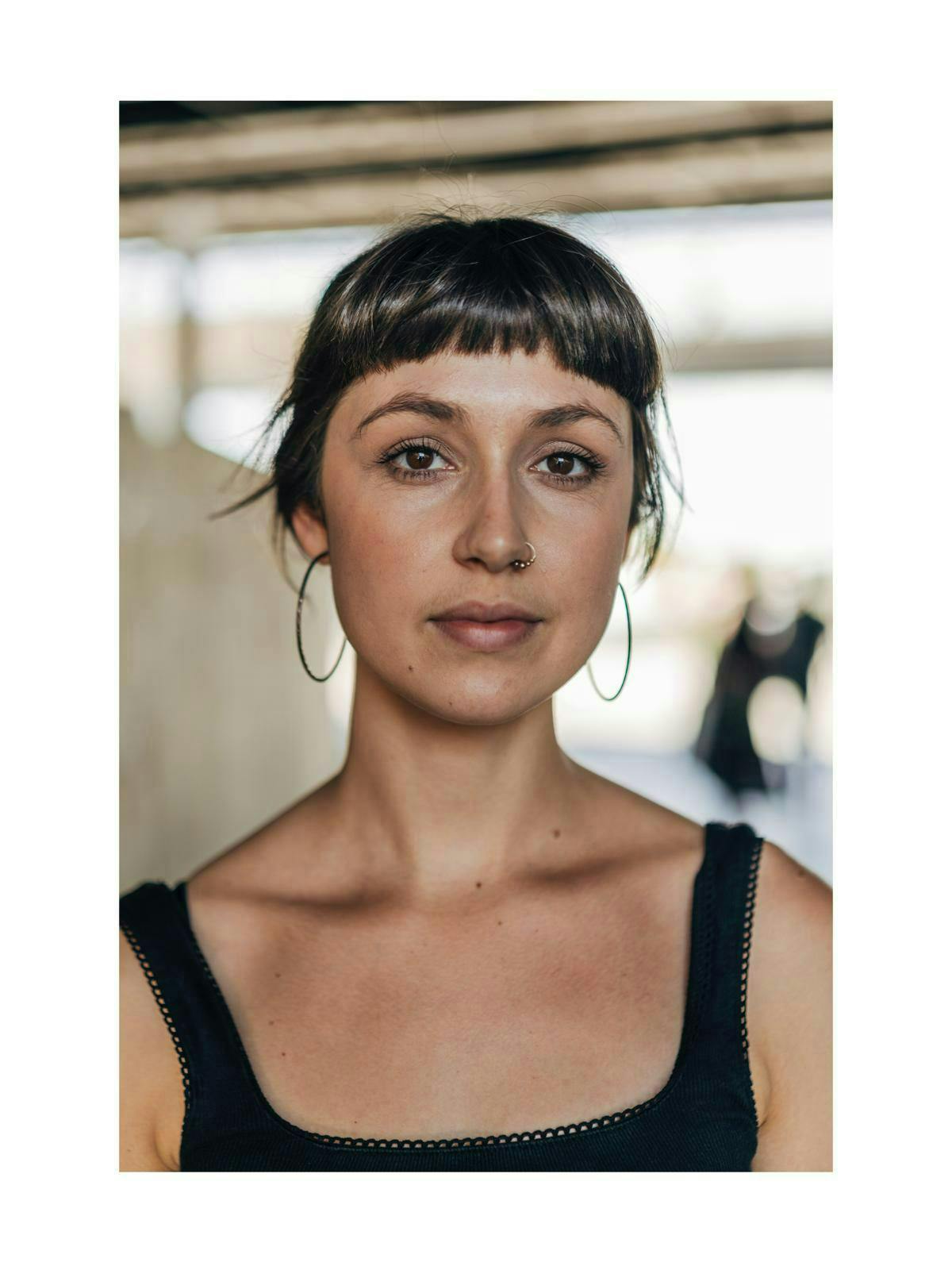What's the startup ecosystem like in Tel Aviv? Here's what local founders think
ith nineteen startups per square kilometer, the opportunities in the Israeli city are flourishing. But what makes it such an accommodating place for entrepreneurs? Here’s what a few founders have to say about their local ecosystem.

Photo: Unplash/Dan Gold
When Tel Aviv was founded on empty sand dunes in 1909, its founders envisioned it would become a clean, major metropolis. Over a hundred years later, Tel Aviv’s startup ecosystem is now considered one of the best outside the US.
Tel Aviv has the largest number of startups per capita globally, the 2018 Global Startup Ecosystem report reveals, as well as the highest investment in R&D. Moreover, the magazines Fortune and Compass have both deemed it as one of the best places worldwide to start a company.
As a global contender in sectors such as security and fintech, Tel Aviv’s tech industry is its strongest and most unique asset. Tech companies in Israel raised a record $4.8 billion in venture capital last year. Moreover, Israel raises venture capital per capita at 30 times the rate of Europe and two and a half times the rate of the USA, according to the World Economic Forum.
With a culture that thrives off quick innovation and swift business transactions, Tel Aviv is proving itself to be an ideal location for startups – something those who have founded a company here have vouched for.
Rapid growth, maturity and a supportive nature
One of the most notable aspects of Tel Aviv’s startup ecosystem is the rate at which it has expanded, Rona Segev, cofounder of TLV Partners (a VC firm focused on B2B software companies) told Startup Guide.
“The ecosystem here in Israel has matured tremendously in the past decade,” Rona says. “It’s growing and maturing rapidly. You’d be shocked at the change from one year to the next.”
With a population of over 400,000, Israel’s second most populous city has quickly developed into an international business hub with one of the highest startup-per-capita densities in the world. At present, one startup accounts for every 290 residents. “I think in many ways it resembles Silicon Valley,” Rona says. “We’re seeing hundreds of startups, and the quality and maturity at even the early stages is amazing.”
When I have a problem to solve, I feel like there’s always people who want to help, people who have done it before and have done it well.
The startup community in Tel Aviv is especially vibrant due to the amount of international tech talent the city attracts, Rona says. Serial entrepreneurs come from all over the world looking to invest, and there is a fluid exchange of people moving back and forth from Europe and the States.
Most residents of Tel Aviv are fluent in English and, across the whole country, most of the communication in startup and high-tech companies is conducted in English. While a lot of people are employed by international companies, others have been inspired to start their own.
Iris Shoor noticed the high volume of startups when she launched her company Oribi in 2015. Oribi strives to make data analytics easy for anyone to access and utilize. “It seemed like everyone in Tel Aviv at that time had founded a startup or was working for one,” Iris told Startup Guide.
Ultimately what it comes down to for Iris is the ecosystem’s “supportive and wonderful” nature. “When I have a problem to solve, I feel like there’s always people who want to help, people who have done it before and have done it well," she says.

Photo: Startup Guide
Tech leads the way
“There’s enough people here who understand tech and startups, including investors, service providers, coworking spaces and universities,” Gigi Levy-Weiss, founder and managing partner at NFX Guild (a VC firm that harnesses networks to help its companies grow), told Startup Guide.
“It’s the second highest density after Silicon Valley, which dramatically increases your chances of being able to set up a successful startup,” he says. With one in ten employees working in the high-tech sector, much of the global talent Tel Aviv attracts is concentrated in this industry. According to Gigi, the most unique thing about Israel is that unlike London or New York, tech is the top ecosystem.
“In Israel, we don’t have financial services, we don’t have natural resources … so everybody who’s really smart or good goes into tech,” he says. “If the top ecosystem is financial services, top graduates are going to go into hedge funds before they go into tech,” Gigi says.
In this sense, Tel Aviv’s ecosystem is self-perpetuating. Technology, as the most dominant industry in the ecosystem, will continue to attract the most bright and educated people, and will consequently maintain the rapid cycle of innovation.
Educational programs focused on entrepreneurship are only serving to further support the city in its lead role as a global startup hub. The Zell Entrepreneurship Program in Tel Aviv, which has been run by IDC Herzliya University for the last eighteen years, enables 25 students to create a business in the final year of their degrees. The university last year launched their first-ever Bachelor course in entrepreneurship.
Israeli culture is at the heart of business
In a cosmopolitan city where people from many religions and origins collide, the Israeli values of pluralism, tolerance and democracy are widely exhibited in Tel Aviv’s startup scene.
Often referred to as the “Nonstop City,” people here are straightforward and love to share their opinions, even when not asked for it. This is part of the informal, warm working culture in Israel where social hierarchies have been dismantled.
Dr. Yossi Maaravi, Vice-Dean of Adelson Entrepreneurship School at IDC Herzliya, told The Guardian in August that much of Israel’s entrepreneurial spirit comes down to culture.
“In Hebrew there’s a word – chutzpah – that means ‘positive rudeness’,” Dr. Yossi says. “Approaching people you don’t know and asking them for a favour or asking them to connect you to someone you need … in Israel people do this easily, even if they’re not entrepreneurs. This is important to deliver ideas, perspectives, and criticism.”
Gigi believes what it comes down to is a culture of empowerment. He says that Israeli culture promotes “a lack of fear of failure, and an understanding that with big risks come big rewards.” Israelis feel comfortable asking difficult questions and exploring all possibilities. They also use obstacles as the catalyst for innovation.
Approaching people you don’t know and asking them for a favour or asking them to connect you to someone you need … in Israel people do this easily, even if they’re not entrepreneurs.
Eyal Waldman, founder and CEO of Mellanox Technologies (a supplier of Ethernet and InfiniBand connectivity solutions) told Startup Guide that it’s important for people to be “on the same place on the ethical curve” when it comes to making key decisions.
“I think it’s very important to be aligned and understand there’s always going to be disputes,” Eyal said. “People need to collaborate and see things the same way when you’re deciding how to make technical and business decisions. I think those things are very important – the ethics of a company, the structure, the bones of the company.”
Not just tech
“Israel is really leading the world in terms of security, and some of the biggest security companies in the world were founded by Israeli entrepreneurs,” says Rona. “More than 30 percent of the market cap of Nasdaq-traded security companies belongs to Israeli companies.”
When it comes to cybersecurity, Tel Aviv was only second to the US last year, statistics from Crunchbase show, with dozens of companies being formed and producing solid exits. Cybersecurity is maturing alongside Tel Aviv’s technology industry, as funding towards later stage companies has notably increased.
Another area that’s becoming very popular in Israel is automotive, according to Rona. “Forty percent of the exits that happened in the last few years in the automotive space have come from Israeli companies. Mobileye is of course leading, but there are many others as well,” she says.
While not currently a leader in cloud computing, Rona thinks that fintech is an additional area where Israel is coming out on top. “If you look, you see that out of the top global fintech companies right now, there are five that are Israeli and are leading the pack,” she says.
You can read more about the entrepreneurial journeys of Rona Segev, Iris Shoor, Gigi Levy-Weiss and Eyal Waldman in our Startup Guide Tel Aviv book, available to be purchased online here.
Main photo: Startup Guide

